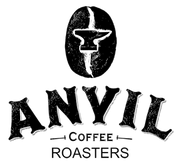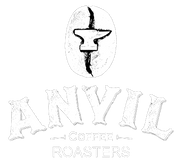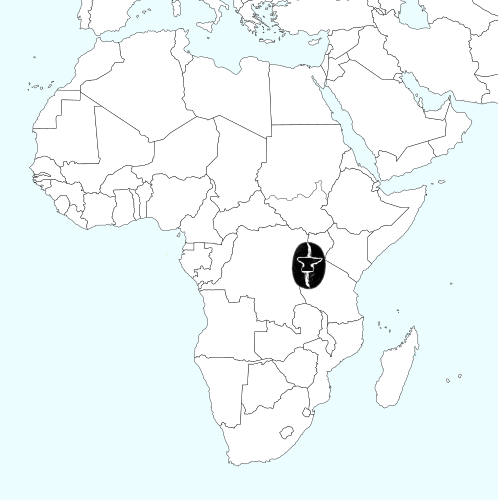
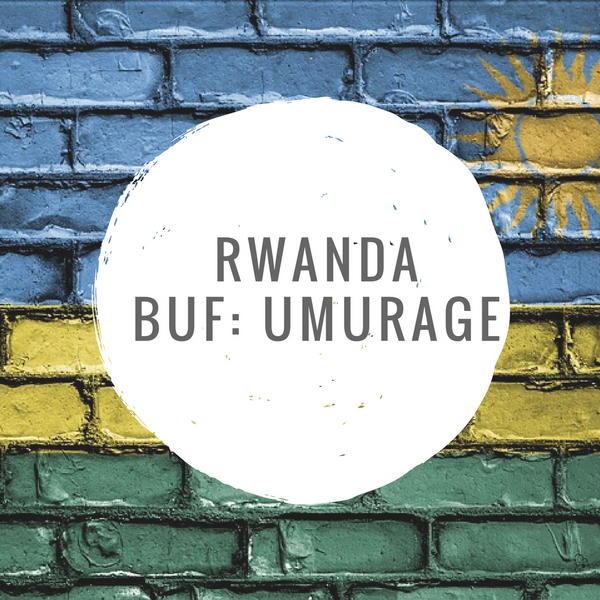
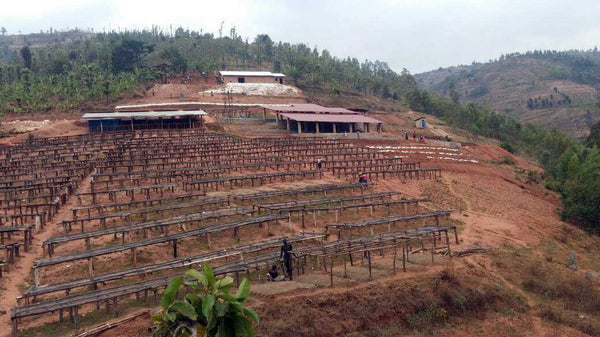
ANVIL Rwanda - BUF Umurage
General Info
(If you would like your beans ground, please let us know which grind you require)
Farm: Buf: Umurage
Varietal: 100% Red Bourbon
Processing: Fully washed & sun dried on raised beds
Altitude: 1,750 metres above sea level
Owner: Epiphanie Mukashyaka
Town / City: Kigoma Sector
Region: Huye District of Southern Province
Cupping Notes
Overall: Honey, apple, dense, treacle juicy
Buf: Umurage - Rwanda
This 100% Red Bourbon coffee was processed at Buf Café’s Umurage washing station, at 1,750 metres above sea level in the south of Rwanda.
Buf Café was founded in 2003 by Epiphanie Mukashyaka, a dynamic businesswoman and a source of inspiration to countless other female entrepreneurs in Rwanda’s coffee sector and beyond. Buf is now managed by Epiphanie and her son, Samuel Muhirwa, who is taking an increasingly active role in running and expanding the business. The title ‘Buf’ derives from ‘Bufundu’, the former name of the region in which its washing stations are located.
Epiphanie, who was born in 1959, was widowed during the 1994 genocide - which claimed over 800,000 lives in just 3 months - but chose not to leave her family’s small coffee farm. Instead she set about rebuilding and developing her business and with it the local community. She started Buf Café in 2003, when she established Remera washing station with a loan from the Rwandan Development Bank and the assistance of the USAID-financed PEARL project.
This transformational programme was aimed at switching the focus in the Rwandan coffee sector from an historic emphasis on quantity to one of quality - and so opening up Rwanda to the far higher-earning specialty coffee market. The programme and its successor, SPREAD, have been invaluable in helping Rwanda’s small-scale coffee farmers to rebuild their production in the wake of the devastating 1994 genocide and the 1990s world coffee crash.
Umurage is Buf Cafés third washing station – along with the renowned Remera and Nyarusiza. The company, which was serving less than 500 farmers in 2003, is now procuring coffee cherries from almost 7,000 smallholder farmers in the Southern province of Rwanda, among them 1,069 are registered members. Umrage alone purchases coffee cherries from 412 registered smallholder farmers, as well as three different local cooperatives. Many of these farmers had been supplying coffee cherries to be processed at Remera and Nyarusiza washing stations. However, since these CWSs were located quite far away from many in the Huye District, Buf decided to construct a CWS close to them. It was in this 2017 season that Umurage CWS was constructed reducing the burden of farmers travelling large distances supplying their coffee.
Almost all these small producers have inherited their very small coffee farms from their parents and had been farming coffee for decades, but for very little money. In part, this was an infrastructure to quality issue. Prior to 2002, their production was mostly home processed, resulting in semi-washed coffees with low market value. After 2000, with the introduction of wet mills in Rwanda, home processing began to take a back seat, as farmers saw higher returns from supplying cherries to CWSs. When Buf came on the scene, this situation was sealed, and the relationships between Buf and the local communities that supply the washing stations keep getting stronger and stronger. Buf provide numerous jobs for locals. Around 127 at Remera during peak harvest (May - June/July) and 10 permanent positions A further 116 people are employed at Nyarusiza during harvest, with 9 permanent positions. (2014 figures) Furthermore, at the end of each season Buf will share any surplus profits with both the cooperatives that it works with and its washing station managers.
Recently, Buf integrated farmers that they work with into different groups each composed of 30 to 60 farmers. Through these groups, farmers are trained in good agricultural practices to improve their coffee quality and quantity while conserving the environment. The majority of the small farmers in the area have an average of only 300 coffee trees (less than a quarter of a hectare) and use some of their land to cultivate other crops such as maize and beans to feed themselves and their families. Most of their income from the sale of coffee is used to take their children to school, pay for medical care and for investment in livestock such as a cow for milk, both for use in the home and for sale locally. Access to training and information that can help to increased yeilds through the new program has the potential to be transformational.
The level of care that all Buf washing stations take over their processing is impressive. Cherries are hand-picked only when fully ripe and then pulped that same evening using a mechanical pulper that divides the beans into three grades by weight.
After pulping, the coffee is fermented overnight (for around 12-18 hours) and then graded again using flotation channels that sort the coffee by weight (the heaviest – or A1 – usually being the best). The wet parchment is then soaked in water for around 24 hours to stabilise moisture content.
As at most washing stations in Rwanda, women do the majority of the hand sorting. This takes place in two stages - on the covered pre-drying tables and on the drying tables. Washed beans are moved from the wet fermentation tanks onto the pre-drying tables, where they are intensively sorted under shade for around six hours. The idea is that greens (unripes) are still visible when the beans are damp, while the roofs over the tables protect the beans from the direct sunlight. Next, the beans are moved onto the washing station’s extensive drying tables for around 14 days (depending on the weather), where they are sorted again for defects, turned regularly and protected from rain and the midday sun by covers, ensuring both even drying and the removal of any damaged or ‘funny looking’ beans. After reaching 11% humidity, the coffee is then stored in parchment in Remera’s purpose-built warehouse prior to final dry-milling and hand-sorting at the dry mill in Kigali. Each coffee that arrives is also cupped by the Q-graders of Buf’s & Mercanta’s exporting partner, Rwashocco.
Lots are first separated by collection point (farmers usually hail from around 3 km distance from each collection point) and are also separated out by days. Upon delivery as cherry, the coffee receives a paper ‘ticket’ that follows the lot through all its processing. This ticket bears the date of harvest, the collection point name, and the grade (A1, A2 etc) of the coffee – for instance, if a coffee lot is called ‘Lot 1- 06/04 - A1’, this means it was the first lot processed on April 4 and the grade is A1. This simple but effective practice is a crucial tool in controlling quality and ensuring the traceability of lots.
